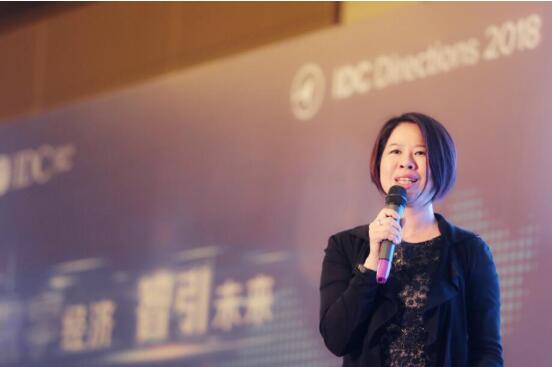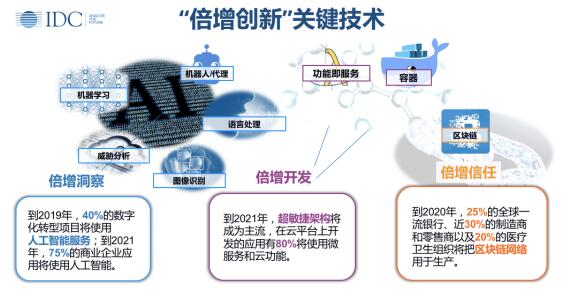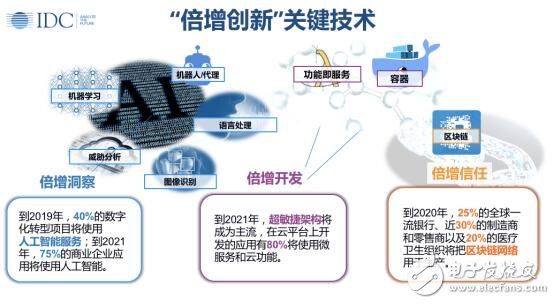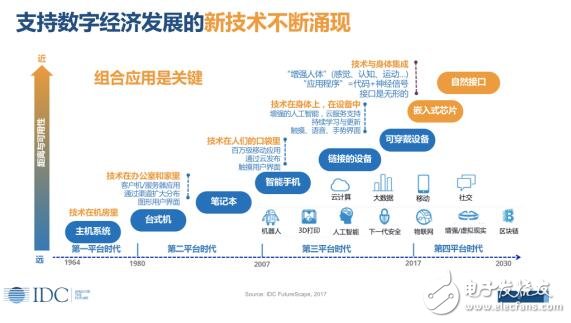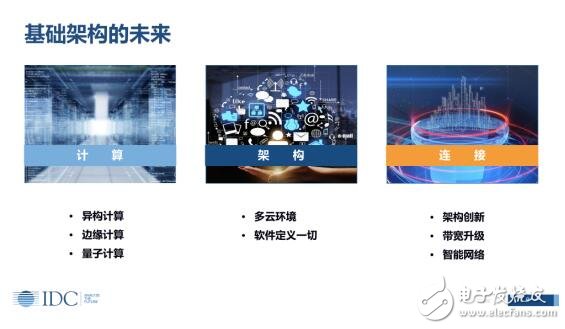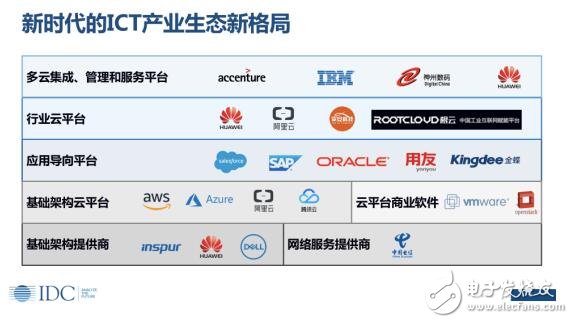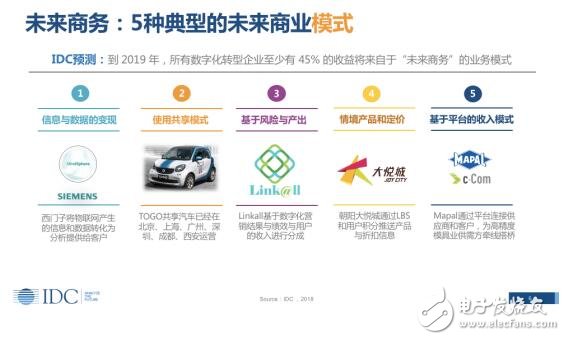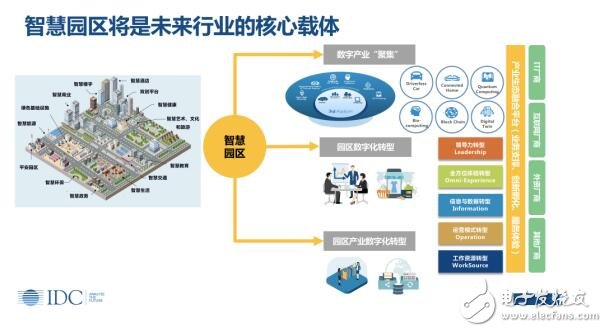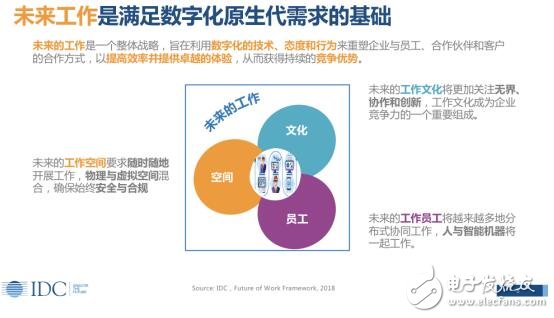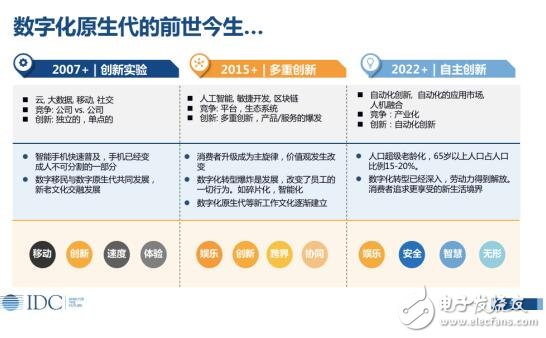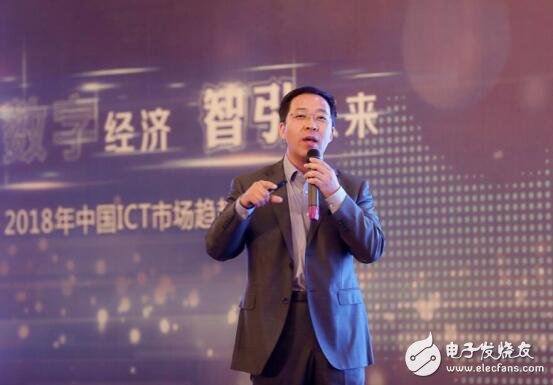IDC China hosted the annual China ICT Market Trends Forum in Beijing today. The theme of this forum is the digital economy, which will lead the future. At present, the digital transformation has entered an accelerated period, and the world has entered the era of digital economy. IDC expects that by 2021, at least 50% of global GDP will be digitized, and China's digital economy will account for more than 55%. Digital products, digital services, digital operations, and digital ecology will promote continuous innovation and transformation in various industries and achieve steady growth. By 2020, investors will use the digital platform/ecosystem, data value and customer engagement as the elements of the assessment of the enterprise, and intelligence will penetrate all aspects of the enterprise and lead the future of the enterprise. Ms. Huo Jinjie, President of IDC China, said: “The third platform has entered the second phase of multiplication and innovation since the pilot phase of 2007. The key technologies of the third platform and the deep integration of various industries have achieved the second stage. In order to achieve multiplication and innovation, we need to use technology to achieve multiplier insight, multiply development, and multiply trust. This requires ICT vendors and industry users to better understand the changes in the digital economy era, understand future policies, master future technologies, and build future ecology. Digging deep into the future industry to meet the needs of future users." Future policy The core of China's future policy is to support industrial upgrading and innovation, achieve sustainable green development, and continue to move toward globalization. The five key words of the future policy are: technology leadership, virtual and real integration, openness to the outside world, self-control, and talent-oriented. Future technology New technologies that support the development of the digital economy continue to emerge, and mastering and applying the latest technologies is the key to unlocking the future of the digital economy. Software-defined infrastructure, cloud computing 2.0, artificial intelligence, blockchain, Internet of Things and 5G will all have a profound impact on future industry development. In the future, artificial intelligence will be everywhere. IDC expects that by 2019, 40% of digital transformation projects will use artificial intelligence services. By 2021, 75% of commercial enterprise applications will use artificial intelligence, more than 50% of consumers will interact with customer service robots, and more than 90% of new industrial robots will rely on artificial intelligence. In terms of computing, artificial intelligence will promote the rapid development of the Chinese market. In 2017, China's GPU server market grew by more than 230%. IDC expects to maintain a high growth rate of over 43% in the next five years. By 2022, its market size will exceed $3.4 billion, accounting for 16% of the overall market for X86 servers. In terms of architecture, in 2021, more than 90% of global cloud users will choose a cloudy architecture. The Chinese software-defined infrastructure will exceed 50% market share in the next three years and support a cloudy architecture. In terms of connectivity, software-defined networking is an important implementation. IDC expects that by 2022, China's software-defined network market will reach 1.24 billion US dollars, and data centers, WANs and campus networks will generally turn to network software. Future ecology User needs are becoming more complex, technology and applications are becoming more complex, and no single company can provide all solutions, and eco-based innovation is becoming increasingly important. The emergence of a new generation of infrastructure and next-generation applications will reshape the new landscape of the ICT industry, which will be as important as intellectual property – either ecologically or ecologically. IDC expects that by 2020, 60% of global enterprises will design/deploy enterprise digital platforms and use them as the latest IT core tools to develop and manage core IP and data, while integrating cloud platforms, industry platforms, data and code communities, Resources such as partners and customers. Future industry Using the application of third platform technology and innovation accelerator technology, such as big data, cloud computing, Internet of Things, augmented reality and virtual reality, fundamentally change the business operation mode between individuals, enterprises and goods, through business model innovation, based on production Delivering results to deliver products or services will be at the heart of the industry of the future. The new business model is becoming a means of creating, delivering and monetizing the value of digitally supported products and services. IDC expects that by 2019, at least 45% of all digitally transformed industry companies will benefit from the “future business†business model. Future users Digital generation is the core of future users. A deep understanding of the characteristics and needs of digital native generation is the basis for seizing business opportunities. On the other hand, the development of future technologies and future industries will have a huge impact on people's work, and the future trends and changes in work will in turn greatly affect future users. IDC believes that future work is a holistic strategy that leverages digital technologies, attitudes, and behaviors to reshape the way companies work with employees, partners, and customers to increase efficiency and deliver superior experience for continued Competitive advantage. Wu Lianfeng, vice president and chief analyst of IDC China, concluded: “In the digital economy, information and how to use information is the key to success. Consumer participation and large-scale are the foundation of development. Ecosystems are as important as core intellectual property. Users and ICT vendors must master the characteristics of the digital economy and integrate them into the core of business operations and corporate culture, and deeply understand the future policy, future technology, future ecology, future industry, future work connotation and development trend, and accelerate to become a digital primary enterprise ( DNE), this is the key to achieving a full-scale transformation in the digital economy era and winning the opportunities ahead." Servo Cable is suitable for continuous moving occasions, double shielding effect strong anti-interference ability, signal transmission line and power connection line integration, saving installation space to reduce their own weight, maintain the reliability and stability of work, Widely used in control motors, executive motors, machine tool manufacturing, automobile manufacturing, heating and air conditioning systems, complete equipment installation engineering, paper industry, refrigeration equipment, office automation equipment, and data processing systems and other occasions. Servo Encoder Cable,Incremental Encoder Cable,Siemens V90 Cable,Motor Application Encoder Cable Kunshan SVL Electric Co.,Ltd , https://www.svlelectric.com